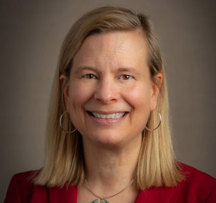Food Systems Podcast 44
In discussion with Shari Rogge-Fidler summary
Thursday, Nov 17, 2022
How can agriculture provide solutions to tackle climate change and how is the Farm Foundation supporting growers?
In this episode we discuss with Shari Rogge-Fidler, President and CEO of the Farm Foundation, based in Chicago, USA, how she thinks agriculture could provide solutions to tackle climate change. As a farm owner and operator herself, she explains her thoughts on the position of farmers on this matter, and the role they are aiming to achieve, also at a political level. She also explains why the Farm Foundation recently joined with the Forum, AFI and CAPI, to launch the Global Forum for Farm Policy and Innovation (GFFPI). For a taster, read our short summary below, or dive into the full 22-minute Food Systems Podcast for much more.
What is the Farm Foundation’s role?
The Farm Foundation was established in the 1930s as what we believe was the first U.S. ag institute, especially focusing on policy. We position ourselves as a think tank, do tank, trying to accelerate practical solutions. Our levers are policy, innovation and education. We prioritise four thematic areas: farmer health, digital ag, markets including trade, and sustainability.
The Farm Foundation is a non-partisan, non-lobbying, big tent organisation with farmers and ranchers of all shapes and sizes across the US.
Can agriculture play a role as a climate solution? How compatible is that with farmers’ primary role as a food producer?
Agriculture can absolutely play a big role in both climate mitigation and adaptation. There are many places where this is already underway, just not at scale yet. The regenerative ag movement really supports climate solutions and is especially strong with investors across the sector and food companies.
There’s a big gap between what’s going on at the corporate and investor level and at the farm. The farmer’s primary role is providing food, feed, fuel and fibre. This is not necessarily top of mind for most farmers and ranchers, but is a co-benefit, not a competing goal.
What is the extent of interest among farmers and ranchers in playing that dual role? What motivates them?
Whereas in the past, maybe farmers and ranchers did not accept or believe in climate change, the stats now show that about 80% do. Where the differences might be, is over causes, solutions and the role government and the private sector should play.
We are seeing some really strong market signals from before the Biden administration to affect change for climate solutions with farmers. With the Biden administration, the government role has started to shift.
How is the Farm Foundation supporting growers perhaps thinking about jumping into this space?
There are so many opportunities from the market and the government. We cannot advocate a certain solution or option, but we have issue reports and forums to lay out the information for farmers and related organisations to try to have a one stop shop.
We are launching an innovation education farm to help all stakeholders better understand some of the key farm level issues and how they relate to the market and policy.
How might the midterm elections impact the direction the Biden administration has taken?
The Biden administration has certainly made some bold plans and commitments for climate solutions. I think there will be headwinds but the current commitments will likely still move forward, but just no additional ones. As for the farm bill, we thought there was a possibility of seeing a revolutionary bill. I think those chances are probably reduced now after the midterms.
You will participate in the US-EU collaboration platform on agriculture in Brussels in December. What are your expectations?
With the Farm Foundation, our mission is to build trust and understanding at the intersection of agriculture and society. That’s the language being used for this gathering in Brussels. My hunch is why some of the differences exist might be around the different structures, size and scale of agriculture in Europe and the US, and perhaps a different view on the role of government and the private sector.
We are advancing a few projects with the EU and the USDA during 2023. I’m hoping to find more opportunities to do so while I’m there.
We’ve worked with you to launch the Global Forum for Farm Policy and Innovation. What motivated you and what are your hopes?
It was an opportunity and a challenge. We have an informal relationship with the Canadian Agrifood Policy Institute. Having had a good experience, I saw this as an opportunity to expand. Too much of the ag sector is focused domestically. For good reason.
But the food and ag sector is global. I thought it was a challenge to expand to a global health focus and look for other similar organisations. We started gathering informally over the last year. For 2023, our focus is on trade and sustainability.
If you have found this short summary interesting, there’s lots more to hear in the full 22-minute conversation. It is available now on iTunes, Podbean or Spotify or on this website.

Shari Rogge-Fidler
Shari is president and CEO of Farm Foundation with over 25 years of global leadership and executive...see more
